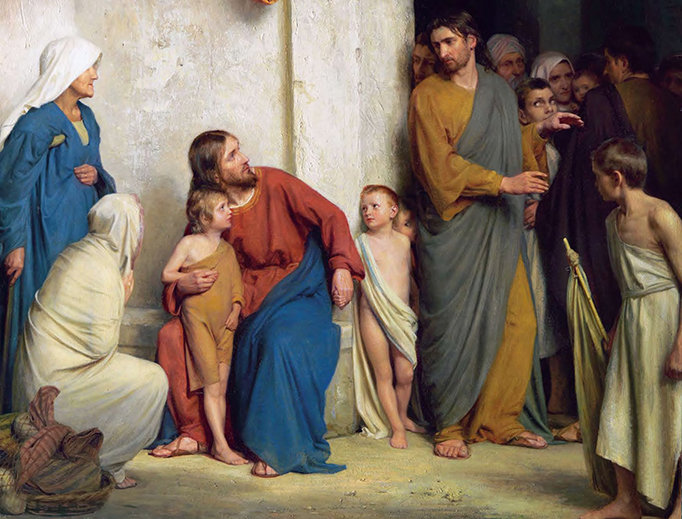
For most of us, I suspect, greatness is about being number one, a winner, a success. It’s about power, control, wealth, fame, reputation, status, and position. Have you ever seen the losing super bowl team dancing around Monday morning with two fingers in the air shouting, “We’re number two, we’re number two?” Probably not, and you probably never will.
What makes a person successful is always in short supply and easily slips away. Yet amazingly, people are desperate for success as the world counts success. There is an alternative. We may be slow to pick up on this. The disciples certainly were. What matters is that, sooner or later, we all catch on.
In this Gospel, Jesus is teaching His disciples the same thing that we heard him teaching them last week, that “the Son of Man is to be betrayed into the hands of men, and they will kill him, and three days after being killed, he will rise again.” But they did not understand what he was saying and were afraid to ask him. I guess they didn’t have a teacher tell them that there is no such thing as a stupid question. Or, even better, that the only stupid question is the one not asked.
What the disciples are discussing, however, is something different. Walking only a few steps from Jesus, they are arguing among themselves about which one of them is the greatest. These disciples are engaged in a contest about who is the one among them most likely to succeed as the world counts success.
Imagine that Jesus listens to all our conversations. Imagine that Jesus knows the real hopes and longings of our hearts. I take great comfort in knowing that Jesus knows me, knows my heart, knows us, knows what we are worried about and working on. Then it says, Jesus sat down, called the disciples together, and said, “Whoever wants to be first must be last of all and servant of all.”
Greatness – for Jesus, and for us – is never about power and prevailing, never about dominating and doting over another, never about asserting ourselves or our way. Greatness is about serving, sacrificing, caring, and sharing. He took a child and said, “whoever welcomes one such child in my name, welcomes me, … and also the One who sent me.”
Let’s be clear – the child in this little story – is not to show how Jesus loved little children, though he did. It is not a message about glorifying children. It is absolutely a message about sacrificing and serving, caring and sharing. It is an illustration of his previous point – whoever wants to be first must be last of all and servant of all.
Children were regarded in that day as non-persons, possessions of the father of the household, not yet full persons. They were not meant to be seen nor heard. So, it is counter-cultural; Jesus brings a child into the center space for his teaching to make a point. The greatest are not those with power and prestige but those who serve others, welcome children, tend to the needy, the destitute, the forgotten. The greatest are not those in places of privilege, but those who see and love those who are on the margins, left out, oppressed, and abused.
We all assume greatness is something we ascend to. Greatness is something we achieve by climbing, proving, winning, gaining. Jesus shows another way – in His very life and in His teaching.
So, we are great, not when we have power and influence, but when we descend toward loving service. We are great, not when we have money, degrees, status, or professional success, but when we sacrifice and support the promised reign of Jesus with justice and joy. We are a great church, not because we have lots of members or strong finances, or a beautiful building, but because all of our energy is directed toward the spread of God’s Love and Hope in the city and world. The descending way brings real greatness – sacrificing, serving, giving, sharing, and losing life to find it.
If you were to be the best person someone has ever met, what would you want them to say about you? What qualities or characteristics would you want them to describe? Pick a couple things or ways you would want to be. How are you going to become that? What parts of your life need strengthening in order to become that and what parts need changing in order to become that?
Today, take some time and ask yourself: Do I hope that others admire me, or am I content to be simple, pure, and loving like a child? Young children have no guile. They simply are “who they are”. They trust. They love. They enjoy life. Today, observe a child. Imitate a child. You may find that you will have a more joyful, peaceful, and relaxing day!
–Dcn. Terry Murphy

